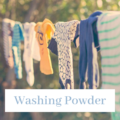Dry Hands 101
Only skin of steel would escape dry hands at the moment. With all the hand-washing that’s needed to keep us safe from infection, our palms will turn into sandpaper without some extra care!
Dry cracked hands are often the result of repeated washing – over exposure to detergents and hard water, contributing to moisture loss. This is inevitable when there’s a global epidemic or in certain professions. Doctors and nurses disinfect their hands all day long, as do many paramedics or carers, for example.
Other professionals also suffer from dry skin on hands: craftsmen, construction workers, police and firefighters permanently expose their hands to the cold, wind, humidity and or aggressive chemicals. Ditto for cooks, gardeners, the list goes on …
People with eczema or psoriasis, and the elderly and young children who have thin and fragile skin are likely to experience dry hands quite acutely.
In short, dry hands are commonplace. They can also be very painful, especially when the skin gets so dry that it cracks.
1. Moisturise Dry Hands After Washing
This is pretty obvious! But we cannot understate the importance of moisturising. Your skin acts as a barrier to infection, so it’s important to keep it intact. Moisturising regularly – after washing and hand sanitising – will help keep the skin from drying out and support its barrier function.
Also choose the right moisturiser: – Creams based on liquid paraffin or petroleum are cheap. But they offer no active nourishment to the skin, whereas creams made from organic plant oils and butters are full of vitamins. They are also more akin with your skin’s natural oils and thus better placed to replenish them. Moreover, organic butters and oils have as good protective properties as synthetic oils.
Try a good hand cream or protective ointment, like our Organic Calendula Balm. Its 100% organic raw shea butter, coconut and olive oils sink deep into the skin layers to restore moisture and protect from the drying effect of water. And its super strength CO2 extract of marigold helps promote skin repair and condition cuticles.
Moisturising little and often during the day is good to keep dry hands topped up with moisture – and much more effective than applying a lot once a day.
2. Moisturise Dry Hands Before Going to Bed
For very dry hands, apply moisturiser again at bedtime, as an overnight hydrating mask. This gives your skin chance to soak it up for a good period of time before you wash again. Our Lemon Butter Hand Smoothie, or Calendula Balm would again be a great choice for this.
3. Exfoliate with a Scrub or Soap to Remove Dry, Flaky Skin
If your hands are already dry or cracked, then cleanse gently with an exfoliating soap, or massage in a fine-grained sugar scrub. Exfoliating removes dead skin, making way for fresh skin cells that hold moisture effectively. Avoid microbead exfoliants that pollute the environment.
Try our Honey & Oat Cleansing Bar. – Oats are gentle and soothe skin, plus honey is anticrobial. And our soaps are made using the traditional castile method, with extra virgin oil, which makes them very kind and non-drying to skin.
To help natural soaps last as long as possible, always put them on a draining tray so they can dry out properly.
4. Don’t Use Washing Up Liquid as Hand Wash
Natural soaps are a great option to avoid dry hands. Likewise, look for hand washes that are free from harsh ingredients. Sulphates e.g. sodium lauryl / coco sulphate are common in many wash products, but are far from ideal as they’ll strip some of your natural oils away.
In a similar vein, avoid the temptation to use washing up liquid as a hand wash. In addition to strong detergent, washing up liquid usually contains harsh preservatives and buffers. These can irritate skin, disrupting the skin’s natural barrier and leaving it more prone to dryness.
Our creamy body & hand washes are free from sulphates, all harsh detergents and artificial chemicals. They are enriched with organic extra virgin olive oil and calendula to be kind to skin.
5. Wear Gloves When you Wash Up
Rubber gloves are a slight faff and extra step in your routine, but well worth it to create a physical barrier between you and your washing up liquid.
Similarly, use gloves when you are cleaning surfaces as the chemicals in household sprays can also exacerbate dry hands.
6. Dry Your Hands Carefully
Gently but thoroughly dry your hands with a soft towel. Excess moisture on your hands can provide a breeding ground for bugs, but also hard water can in itself be drying.
Drying with a soft absorbent towel rather than stiff or rough-textured (e.g. tea) towel will be kinder to sensitised hands too.
7. Choose a Good Hand Sanitiser
Most hand sanitisers contain alcohol of some form or another as it’s so effective at killing bugs. Isopropyl alcohol or ethyl alcohol are common, but can lead to dry hands. Our Natural Hand Sanitiser uses organic alcohol made from sugar cane, which is kinder to skin, and still highly effective.
A well-formulated hand sanitiser will also contain ingredients to counteract the drying effect of cleansing and disinfecting. Plant-based glycerine, organic plant oils and herbs all soften the impact of frequent washing.
Follow these tips and your hands will soon be looking – and feeling – their best again. Our hands can also be an age give-away, so just like your face, treat them to good skin care.
Want To Try Our Products?
We only source the kindest ingredients from trusted suppliers who don’t practice unethical or cruel methods of farming, which is why we are able to label every single one of our products cruelty free!
Use code: Dryhands20 at the checkout for 20% off your order! – *Limited to one use per customer*
SHOP PRODUCTS
We also offer a wide range of samples for those of you that would rather try a smaller quantity before purchasing the full item!
SHOP SAMPLES
Need More Advice?
If you’d like any more advice please do email us – customercare@odylique.co.uk, add your question as a comment below, or call 01638 491022 – we’re here to help!
What is Dandruff? How To Beat A Flaky Scalp Naturally.

You take care of your hair; you wash it regularly,…





